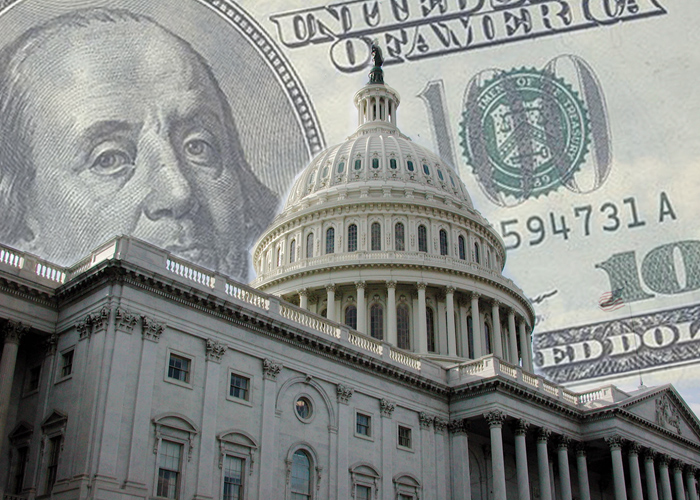As the 2010 congressional campaign shapes up to be the most expensive in history, a Supreme Court decision and unclear campaign finance regulations have thrown some of the rules out the door — and one campaign finance expert tells TPM this is the least regulated election in recent history.
House and Senate candidates in the 2010 election cycle have raised nearly $1.2 billion, and they’re on track to spend more money than candidates did in 2004, 2006 and 2008, according to an Associated Press analysis.
“It does seem like the amount of gray area you used to have — where you’d have to worry about where you’re spending your money or whether you’re doing something that crosses the line — it’s just not there,” David Donnelly, the Director of the Campaign Money Watch project at the Public Campaign Action Fund, told TPM.
In the wake of the Supreme Court’s decision in Citizens United — which allows corporations to spend unlimited amounts of money in an election as long as they do not coordinate with a candidate — the Federal Elections Commission has issued new rules that are supposed to provide clarity, reported The Washington Post. But those rules wouldn’t be in effect until after election season.
In the next election cycle, the FEC ruled that ads that contain the “functional equivalent of express advocacy” for which advocate either for or against a congressional candidate will be considered subject to FEC campaign finance restrictions. But campaign finance experts say the rule is anything but clear and will not be nearly as restrictive as it might appear on its face. The FEC has also ruled that political groups only needed to publicly report corporate and union donations which were specifically earmarked for their ads.
The commission has come under attack from both sides: those who think they are too strict; and those who think the rules are not strict enough.
Meanwhile, groups are already devising ways to get around the letter of the law, with groups making ads that mostly take swipes at candidate and only mention a particular issue at the end to qualify as an “issue ad.”
Corporations are sending their money to groups like the U.S. Chamber of Commerce — which can air election ads without having to disclose their donors.
Donnelly said that corporations that are brand sensitive will wait to see how things play out this year, and some will explore what the best strategies are for hiding their donations.
“I think [corporations] are going to dip their toe in the water this year and see what sort of pushback, what blowback they get,” Donnelly said.






